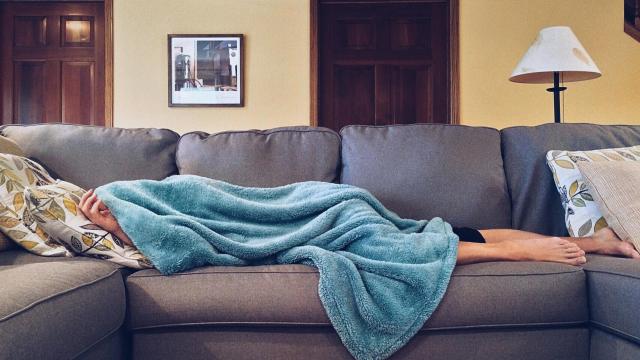Hands up if you’ve ever woken up from an okay night of sleep, checked your phone, and found that your sleep was “low quality” or that you got very little “deep” sleep. How did you feel the rest of the day? Crappy? It’s possible you can blame your tracker, not your actual level of sleep, at least partially for how you felt.
The truth is that trackers are OK at telling you when you slept — it’s easy for them to pick up on your bedtime and wake-up time — but pretty bad at understanding what happens in between. And everybody’s sleep needs are a little different, so even if you get less than the eight hours you were hoping for, that doesn’t mean something is wrong with you.
[referenced url=”https://www.lifehacker.com.au/2019/02/how-much-sleep-do-you-really-need/” thumb=”https://i.kinja-img.com/gawker-media/image/upload/t_ku-large/wpsw6zbex7ctrbfaibl8.jpg” title=”How Much Sleep Do You Really Need?” excerpt=”Everybody’s sleep needs are a little bit different, but most adults should be getting between 7 and 9 hours per night. So how do you find your specific number?”]
In a 2014 study (paywalled but summarized here), researchers asked people how they thought they slept, and then showed them their sleep data from a lab test. They lied to the participants about sleep quality: Some were told they enjoyed more REM sleep than average, while others were told they had less than average.
On a series of cognitive tests, participants’ performance usually (but not always) matched how well they had been told they slept. It seems they believed the fake analysis over their actual feelings and experiences.
Our fitness trackers feel very real and personal. We get up-to-the-minute data, and have no reason not to trust it. But in a 2017 paper, a group of sleep specialists wrote that trackers were interfering with some of their patients’ treatments. (One woman even had normal results on a laboratory sleep study, but demanded to know how that was possible when her Fitbit said she was sleeping poorly.) The authors wrote:
All three patients were spending excessive time in bed in attempts to increase the sleep duration reported by the sleep tracker, which may have exacerbated their insomnia. Given that these devices tend to overestimate sleep, they may have served to reinforce poor sleep habits by encouraging extending time in bed.
We don’t have data on how often people might be fooling themselves about their sleep quality based on tracker data. Maybe it’s rare; maybe it’s more common than we think. The most important thing to remember about your sleep tracker is probably just that it’s not automatically correct. Trust your body and your own feelings rather than offloading that job to some tech. And if a sleep professional is telling you to do something that your app doesn’t like, you should probably trust the professional and not the app.

Comments